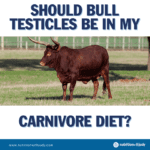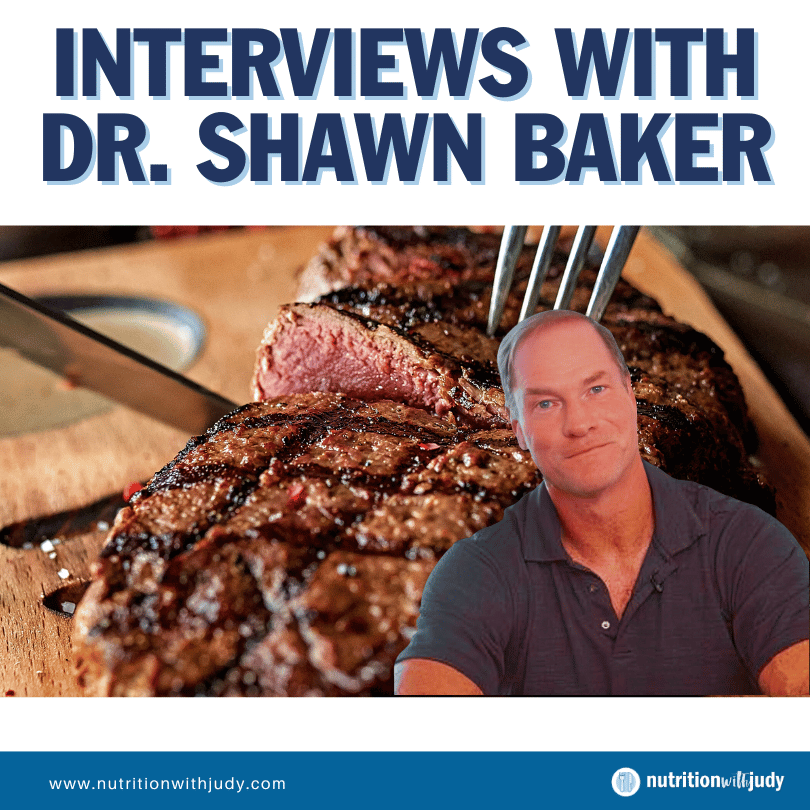

Interviews With Dr. Shawn Baker


January is an exciting time for us at the holistic wellness practice, as we join the global community in celebrating World Carnivore Month. It’s a period marked by heightened awareness and interest in the carnivore diet, a nutritional approach we passionately advocate for. This month, we’re thrilled to turn the spotlight on Dr. Shawn Baker, a prominent figure in the carnivore diet movement and an esteemed orthopedic surgeon.
Dr. Shawn Baker, renowned for his advocacy and extensive knowledge of the carnivore diet, has been a pivotal force in driving its popularity and acceptance. As a dedicated practitioner of the diet himself, Dr. Baker’s insights and experiences offer invaluable perspectives on its benefits and practical applications. His approach combines medical expertise with a deep understanding of the diet’s impact on overall health and well-being.
In our featured article series, we delve into engaging and informative discussions with Dr. Baker. These interviews explore the evolution and future of the carnivore diet, touching upon its role in functional wellness and holistic health. As World Carnivore Month unfolds, we aim to provide our readers with a comprehensive and enlightening exploration of this dietary approach, guided by one of its most influential advocates.
What Is the Carnivore Diet?
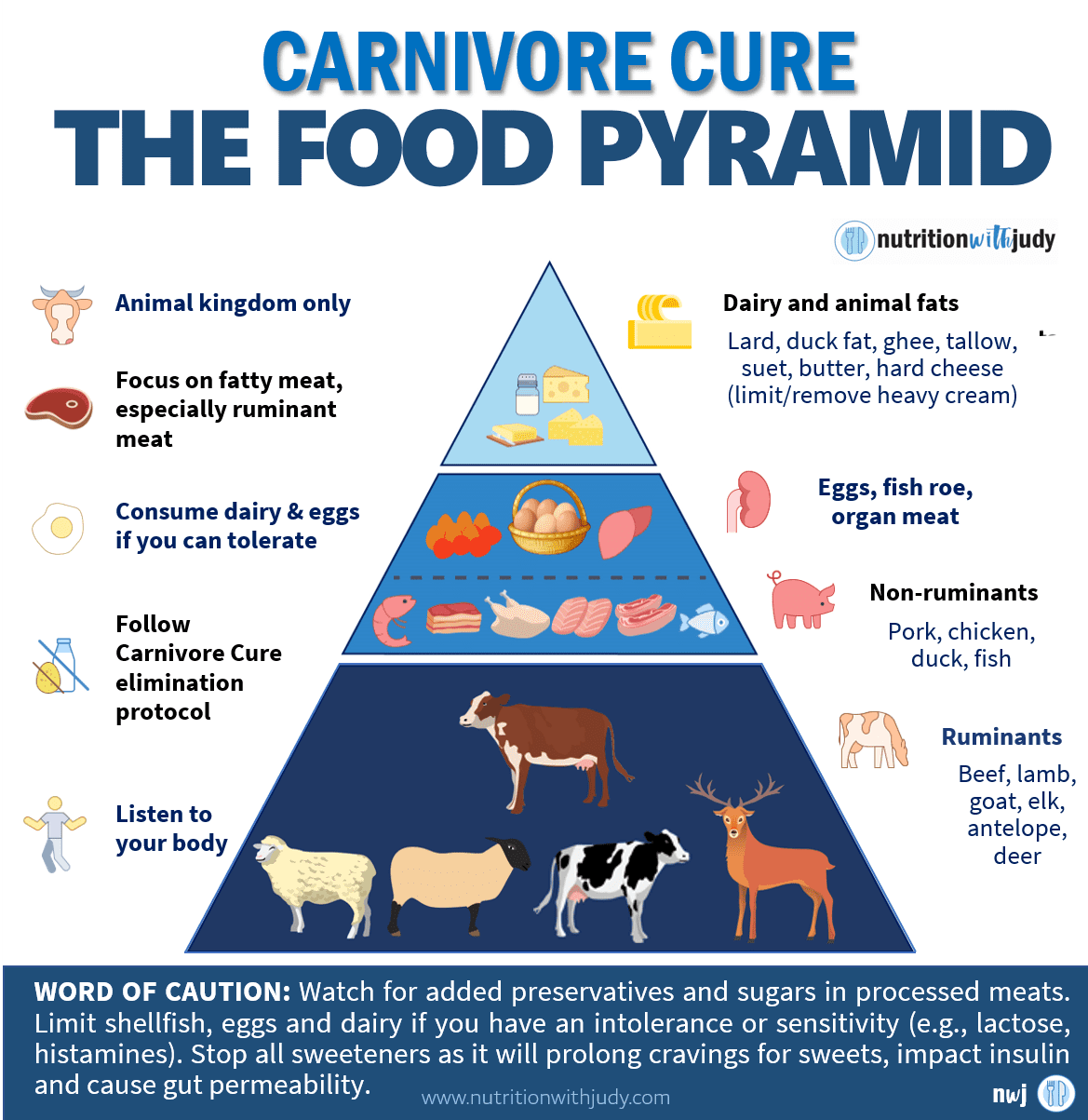

The carnivore diet is an all-meat diet that focuses on consuming animal products exclusively, with the aim of optimizing health and well-being. This diet comes in various forms, each tailored to individual needs and health goals. Here’s an overview of the different variations of the carnivore diet:
- Beef-Only Carnivore Diet: This variation restricts the diet exclusively to beef, emphasizing its nutrient density and digestibility. It’s the most restrictive diet variation, offering the ultimate elimination diet, and is also ideal for supporting deeper health issues.
- Lion Diet: A more restrictive form, the lion diet typically includes only ruminant meats (such as beef, goat, bison, or lamb), salt, and water. It’s designed for individuals with severe autoimmune or digestive issues.
- Nose-to-Tail Carnivore Diet: This approach includes a wide range of animal products, from muscle meats to organ meats, bone marrow, and more. It aims to utilize the entire animal, but is a nuanced approach that requires personalization.
- Zero-Carb Carnivore Diet: While all carnivore diets are low in carbohydrates, this version includes dairy and eggs which do technically include some carb content. This way of eating is nearly zero-carb and is ideal for those who tolerate dairy and eggs.
- Carnivore Keto Diet: This version aligns with the principles of a ketogenic diet, focusing on high-fat, moderate-protein, and near-zero carbohydrate intake from animal sources. It offers a bit more variety with some keto favorites that are considered lower toxicity in terms of plant anti-nutrients.
- Carnivore-ish Keto Diet: This is a more flexible approach, including mostly animal products but allowing some plant-based foods that are low in carbohydrates. It expands a bit more into sweetener alternatives and some nut products. This diet variation is ideal for those who have healed, are metabolically flexible, and don’t suffer from any food addiction issues.
- Animal-Based Diet: This variation includes meat, organs, raw dairy, honey, and fruit. Similar to the Ray Peat diet, we’ve generally only seen individuals who are very athletic, metabolically healthy, and don’t have sugar addiction issues do well with this type of diet.
Each of these diets can be customized based on individual health needs and goals. The core idea is to focus on meat-based nutrition, eliminating potential irritants and allergens found in plant foods, and providing a nutrient-rich diet that supports overall health and well-being. As always, it’s crucial to consider personal health conditions and consult with your trusted healthcare provider before starting any new dietary regimen.
What Are the Benefits of the Carnivore Diet?
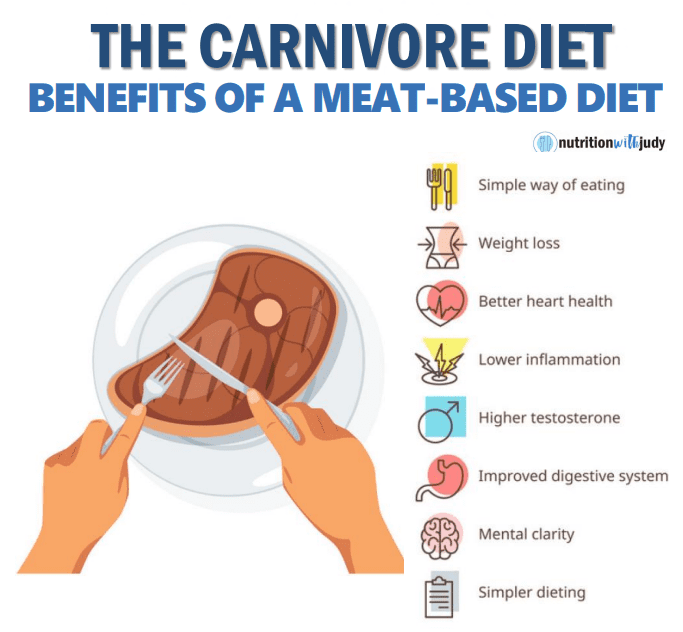

The carnivore diet, centered around the consumption of animal products, offers a multitude of health benefits. This diet, rich in proteins and fats from animal sources, has been found to be particularly beneficial for individuals with various health conditions and lifestyle needs. Here’s a summary of its key benefits:
- Mental Health Improvement: Many individuals have reported significant improvements in mental health conditions such as depression and anxiety after adopting the carnivore diet. This diet has helped free individuals from the often challenging relationship with food, contributing to better overall mental well-being.
- Autoimmune and Inflammatory Conditions: The carnivore diet has shown promising results in individuals with autoimmune diseases. By eliminating potential dietary triggers found in plant-based foods, this diet can lead to a reduction in inflammation and autoimmune symptoms, improving overall health and mobility.
- Identification of Food Sensitivities: For those struggling to identify food sensitivities, the carnivore diet serves as an elimination diet. It helps in pinpointing food-related issues since it removes the most common allergens and irritants found in a standard diet.
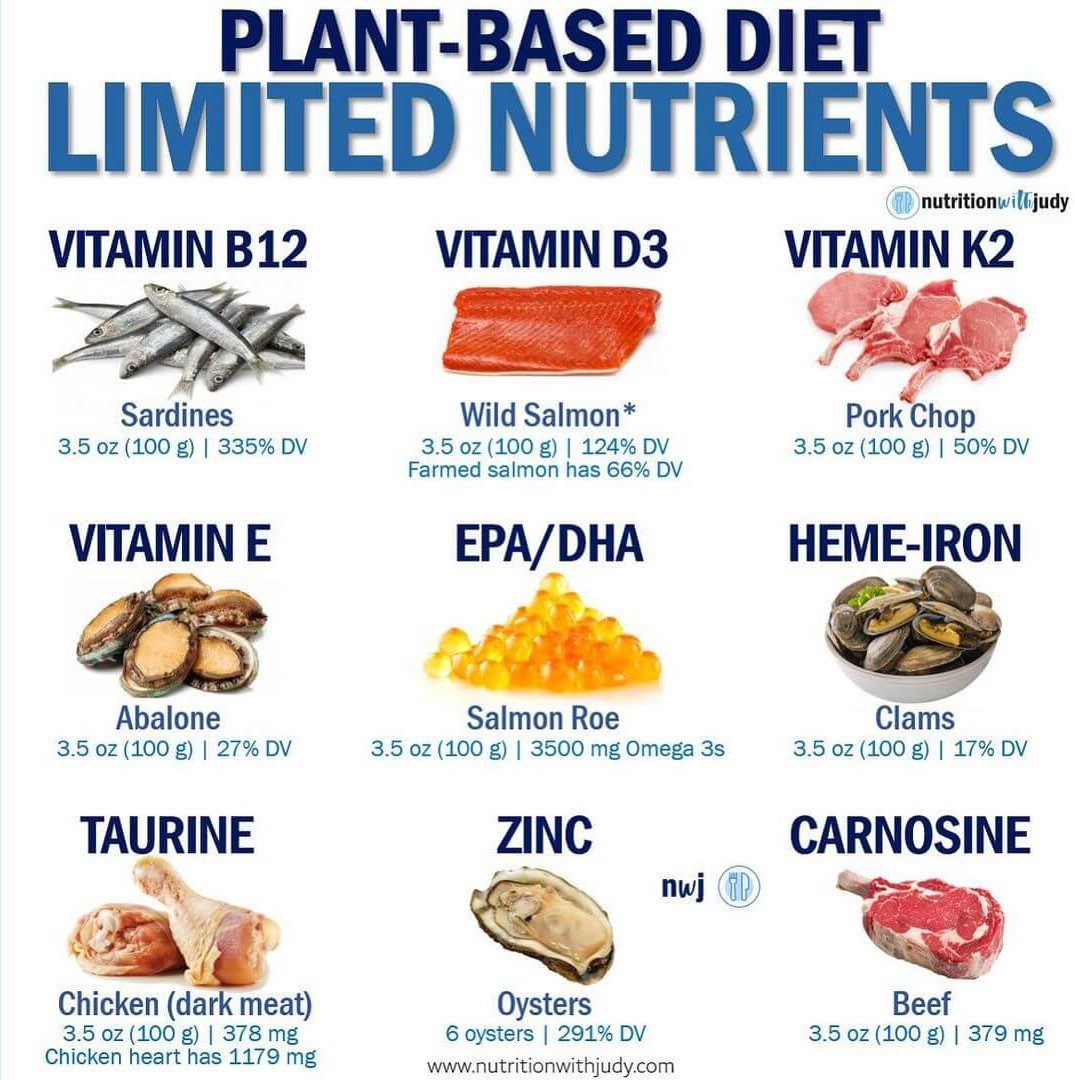

- Nutritional Sufficiency: Despite concerns about potential nutritional deficiencies, the carnivore diet provides a rich source of bioavailable nutrients. Animal products are nutrient-dense, offering essential vitamins and minerals in forms readily absorbed and utilized by the body. It offers essential nutrients that aren’t found or are very limited in the plant kingdom.
- Metabolic Health: The carnivore diet has been beneficial for individuals dealing with metabolic diseases such as type 2 diabetes and high cholesterol. By focusing on nutrient-dense animal products, this diet helps in regulating blood sugar levels and improving overall metabolic health.
- Weight Management and Eating Disorders: While weight changes can occur, many individuals find the carnivore diet beneficial for managing eating disorders. This diet can promote a healthier relationship with food and body image, reducing the triggers associated with eating disorders.
- Customization for Individual Needs: One of the key strengths of the carnivore diet is its flexibility to be adapted to individual health needs and goals. Whether it’s managing insulin resistance, supporting active lifestyles, or addressing mineral imbalances, the diet can be tailored to meet diverse nutritional requirements.
- Healing and Disease Prevention: Adopting a carnivore diet can be a strategic choice for long-term disease management and prevention. Its focus on high-quality animal proteins and fats supports the body’s healing processes, potentially reversing years of health issues related to poor dietary choices.
The carnivore diet presents a unique dietary approach that caters to a wide range of health needs. Its focus on animal-based nutrition, while initially may be viewed as restrictive, offers significant health benefits, including improved mental health, autoimmune relief, nutritional adequacy, metabolic regulation, and personalized health solutions.
Carnivore Diet Tips From Dr. Shawn Baker for World Carnivore Month
In the insightful interview with Dr. Shawn Baker, our conversation delves deep into the carnivore diet, exploring its practical aspects and debunking common myths. Dr. Baker, a prominent advocate of the carnivore diet, emphasizes the importance of a realistic and practical approach to the diet, advocating for simplicity and relatability.
Key Highlights from the Interview
- Practical Approach: Dr. Baker criticizes the portrayal of extreme carnivore diet practices, such as consuming raw brains and testicles, as they tend to alienate potential followers. He suggests that a more approachable method, such as a basic diet of ground beef and eggs, is not only more realistic but also more sustainable for the average person.
- Growth and Evolution: The interview marks the celebration of the seventh year of World Carnivore Month. Dr. Baker reflects on the significant growth of the carnivore diet, noting its increasing popularity and adoption by a diverse group of people. He also discusses the evolution of the diet over the years, highlighting the importance of individual experimentation and customization.
- Health and Longevity: Dr. Baker addresses a common misconception of the carnivore diet – its alleged role in promoting longevity. He argues that while the diet can greatly improve current health and quality of life, there is no definitive evidence to claim it extends life expectancy. The focus, according to Dr. Baker, should be on feeling better today rather than speculative future benefits.
- Personal Dietary Adjustments: Dr. Baker shares his personal experience of adjusting his diet, particularly the fat-to-protein ratio, in response to an injury. This adjustment helped alleviate his symptoms, demonstrating the diet’s adaptability to individual health needs.
- Debunking Myths: The interview also touches on various myths surrounding the carnivore diet. Dr. Baker emphasizes that the diet should not be seen as a panacea for all health issues or a guaranteed path to longevity. He stresses the importance of focusing on immediate health benefits and quality of life.
- Sustainability and Enjoyment: A significant part of the conversation revolves around making the carnivore diet sustainable and enjoyable. Dr. Baker advises against forcing oneself to consume foods they dislike, such as certain organ meats, as this can lead to unsustainable practices. Instead, he recommends focusing on foods that are enjoyable and satisfying.
- Tips for Newcomers: For those new to the carnivore diet, Dr. Baker emphasizes the importance of community support and avoiding extremism. He encourages newcomers to join supportive groups and engage with others who have successfully adopted the diet.
Dr. Baker’s interview offers a grounded, realistic perspective on the carnivore diet. He advocates for a balanced, practical approach that prioritizes current health benefits and sustainability over extreme practices or unrealistic expectations about longevity. His insights provide valuable guidance for anyone considering or currently following the carnivore diet.
2023 Carnivore Diet Interview With Dr. Shawn Baker
We had the pleasure of interviewing Dr. Baker regarding various aspects and controversies surrounding the carnivore diet, emphasizing practical, sustainable approaches.
Key Highlights From the Interview
- Practical Approach: Dr. Baker criticized extreme practices associated with the carnivore diet, such as consuming raw offal, and advocating for simplicity with foods such as beef and eggs.
- Carnivore Diet Growth: We celebrated the growth and evolution of the carnivore diet, particularly noting its increasing popularity and diverse adoption.
- Health and Longevity: Dr. Baker addressed misconceptions about the diet’s role in longevity, focusing on immediate health benefits rather than unproven future outcomes.
- Personal Adjustments: He shared his experience with dietary adjustments, underscoring the diet’s adaptability to individual health needs.
- Debunking Myths: The discussion touched on debunking myths, particularly those suggesting the carnivore diet as a cure-all or essential for longevity.
- Sustainability and Enjoyability: Dr. Baker emphasized making the diet sustainable and enjoyable, advising against forcing disliked foods.
- Community Support for Newcomers: For beginners, Dr. Baker highlighted the importance of community support and avoiding extremism.
- Censorship and Advocacy: We discussed censorship in social media and the importance of advocating for meat consumption to combat misinformation and promote health.
Overall, the interview with Dr. Baker offers a realistic perspective on the carnivore diet, advocating for a balanced approach focused on current health benefits, sustainability, and enjoyment.
2022 Fruit and Carnivore Diet Interview With Dr. Shawn Baker
We discussed with Dr. Baker the implications of incorporating carbohydrates, particularly fructose, into a carnivore diet. He acknowledged the potential risks, noting that the dose makes the poison. Citing animal studies, he suggested that excessive fructose intake could lead to issues such as fatty liver disease. However, he also emphasized individual differences, where some people might handle certain carbohydrate levels without adverse effects.
Dr. Baker pointed out that issues often arise when meat is consumed in a high-sugar diet, potentially leading to gut dysbiosis. This could result in negative secondary effects from meat consumption. He disagreed with the assertion that everyone must include specific foods such as fruits or organ meats in their carnivore diet, as many thrive without these additions.
He highlighted the importance of being objective and observing personal reactions to diet changes. Dr. Baker mentioned that a strict carnivore diet could be a good starting point, with later additions based on individual tolerance. He also touched upon the cost-effectiveness of a carnivore diet, especially for those with limited budgets.
Dr. Baker discussed using AI to tailor dietary recommendations based on individual conditions and demographics, recognizing the varying nutritional needs across different groups.
2022 World Carnivore Month Interview With Dr. Shawn Baker
In this interview, we discuss the individualized nature of the carnivore diet. We highlight that while some people follow the strict carnivore cure protocol long-term, others may reintroduce certain plant foods as per their individual health requirements. Dr. Baker and I emphasize the importance of personal experimentation to find what works best for each individual. The interview also covers the relationship between insulin resistance and polyunsaturated fatty acids (PUFAs), particularly those from seed oils such as canola, soybean, and corn oil. These oils are believed to contribute to insulin resistance.
We also touch on hormonal issues and thyroid function in relation to a low-carb diet. Dr. Baker and I note that many experiencing hormonal issues are often under-eating, over-fasting, or over-exercising. We both recommend a higher fat intake in the diet for energy, especially during the initial transition to a meat-only diet. Additionally, we bring up concerns about hypervitaminosis from consuming excessive nutrients, such as those found in beef liver, which can affect liver health and, consequently, the production of ketones and bile.
The topic of mineral balance is also addressed, with us noting that many people add fruits or honey to their diet for better mineral balance. However, we suggest that this might be a temporary solution to underlying mineral imbalances. We recommend conducting mineral tests or adjusting macromineral intake (such as magnesium and potassium) to address these imbalances. Lastly, we advise starting a carnivore diet with a high fat-to-protein ratio, around 75% fat to 25% protein in terms of total calories, and caution against consuming fewer than 1800 calories a day.
Hormones and the Carnivore Diet Exerpt With Dr. Shawn Baker
Dr. Shawn Baker and I discuss the nuances of the carnivore diet and its impact on thyroid and testosterone levels. Dr. Baker emphasizes that thyroid hormone receptors, including all hormone receptors, can adjust their sensitivity, meaning that lower levels of thyroid hormones on lab tests don’t necessarily indicate hypothyroidism. It’s crucial to consider whether there are actual symptoms of thyroid dysfunction.
Regarding concerns about low carbohydrate intake affecting thyroid health, Dr. Baker suggests that many issues attributed to low carb intake, such as hypothyroidism, may not be directly caused by the lack of carbohydrates. Instead, they might be part of a larger metabolic syndrome or insulin resistance problem. He also points out that historical human populations have thrived without significant carbohydrate intake, suggesting that carbohydrates are not essential for thyroid health.
The discussion then shifts to testosterone levels in the context of a carnivore diet. Dr. Baker highlights the variability of testosterone levels based on factors such as the time of day and physical activity levels. He mentions his own experience with fluctuating testosterone levels and how exercise intensity and other lifestyle factors can impact these levels. Dr. Baker stresses the importance of looking at the clinical manifestations of hormone function, rather than just numerical values in blood tests. He suggests that most people on a carnivore diet see improvements in clinical indicators of testosterone function, such as body composition, cognition, and libido.
We agree that focusing solely on lab values without considering the overall clinical picture and symptoms can be misleading. They emphasize the importance of individualized approaches and taking into account a person’s entire health history and lifestyle when evaluating the impact of diet on health markers such as thyroid and testosterone levels.
Closing Thoughts On Dr. Shawn Baker and the Carnivore Diet
Dr. Shawn Baker, a proponent of the carnivore diet, discusses its impact on health, specifically addressing concerns about thyroid and testosterone levels. He emphasizes the adaptability of hormone receptors, including thyroid receptors, suggesting that lower hormone levels in blood tests don’t necessarily indicate dysfunction, especially in the absence of symptoms. This perspective challenges the conventional understanding of thyroid health, particularly in the context of low carbohydrate diets such as the carnivore diet.
Baker points out that conditions such as hypothyroidism may be more closely linked to broader metabolic syndromes rather than simply carbohydrate restriction. He references historical examples where populations have thrived without significant carbohydrate intake, further questioning the necessity of carbs for thyroid health.
Regarding testosterone, Dr. Baker highlights its variability and the influence of lifestyle factors such as exercise intensity on hormone levels. He shares his personal experience with fluctuating testosterone levels and underscores the importance of clinical manifestations of hormone function over mere numerical lab values. This approach aligns with the view of treating symptoms and overall health, rather than focusing exclusively on lab results.
Both Baker and our practice advocate for an individualized approach in evaluating the effects of diet on health. We stress the significance of considering a person’s entire health history and lifestyle, rather than making assumptions based on isolated lab values, reinforcing the importance of a holistic view in health and nutrition.
Work With Our Trusted Carnivore Diet Functional Nutritional Therapy Practitioners
The Nutrition with Judy practice is honored to be a trusted carnivore diet practitioner support serving clients from around the globe. We’re passionate about helping our clients achieve root-cause healing in order to lead the best quality of life possible that’s nearly symptom-free. Our team is dedicated to educating our community about the incredible benefits of the carnivore diet. We welcome you to explore our free resources and are always available to support you through personalized protocols. Our Symptom Burden Assessment (SBA) is the perfect starting point for discovering your root cause and is required to work with our team— you can learn more in-depth about this powerful tool here.
Start your root-cause healing journey today and contact us any time with any questions or concerns.
DISCLAIMER: This content is for educational purposes only. While we are board-certified in holistic nutrition and are nutritional therapy practitioners, we are not providing medical advice. Whenever you start a new diet or protocol, always consult with your trusted practitioner first.





